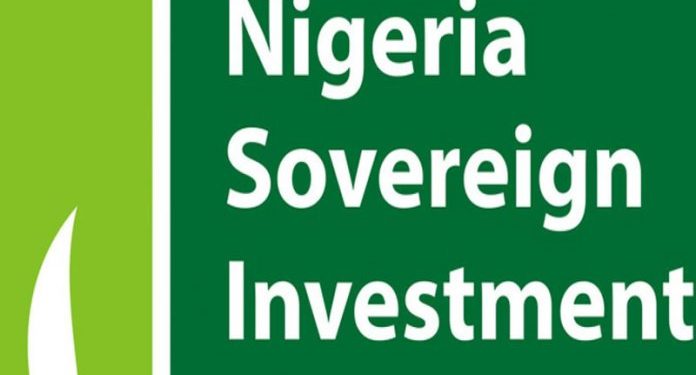The Nigeria Sovereign Investment Authority (NSIA), manager of Nigeria’s sovereign wealth fund, has indicated its preparedness to deploy more capital towards developing infrastructure in the country.
The agency disclosed this in its audited financial results for the 2018 financial year released recently.
The NSIA recorded strong performance in a year when many international markets under-performed and the global economy experienced a moderate pace of expansion.
Despite concerns over international trade flows, slow growth in key economic indicators and increased volatility across financial markets, the Authority’s investment strategy proved robust with headline numbers maintaining a favourable trajectory across the three funds –
Stabilisation Fund, Future Generations Fund and Nigeria Infrastructure Fund.
The results showed that Its total comprehensive income (including the impact of foreign exchange gains) stood at N44.34 billion, higher than the N27.93 billion recorded the previous year.
On the other hand, its total comprehensive income, excluding the impact of foreign exchange gains, in the year under review, was N26.29 billion, as against the N26.28 billion recorded the previous year.
In addition, total assets recorded a growth of 16 per cent, to N617.70 billion at year end, up from N533.88 recorded the previous year.
It disclosed that in the previous year, it raised its focus on domestic infrastructure projects specifically in agriculture, healthcare, and infrastructure enabling financial institutions.
For instance, in healthcare, the NSIA reached financial close on three healthcare projects including a Cancer Centre at Lagos University Teaching Hospital (LUTH) and Advanced Diagnostic Centres at Federal Medical Centre Umuahia (FMCU) and Aminu Kano Teaching Hospital (AKTH).
“We have commissioned the LUTH cancer Centre. The facility will soon be fully open for clinical operations,” it explained.
Under the Presidential Fertiliser Initiative, the agency disclosed that it increased output with approximately 12 million bags of fertiliser produced to date with a total of 18 blending plants participating.
“The Presidential Infrastructure Development Fund (PIDF): Received US$ 650million from NEC and commenced capital deployment across three of the major road projects under PIDF including second Niger Bridge, Lagos – Ibadan Expressway and Abuja-Zaria-Kaduna-Kano Road.
“The joint venture of NSIA and UFF reached financial close on Project Novum, a fully integrated farm located on 3,500 hectares of land in Panda, Nasarawa State.
“InfraCredit: NSIA having created InfraCredit, attracted other investors to the company and de-recognized it from the book. InfraCredit is poised to transform the infrastructure bond market having facilitated transactions for North South Power and Vitan. New investors in InfraCredit AfDB and KfW.
“Other key infrastructure projects in the pipeline for 2019 include: Commodities Exchange (NCX): Progress has been made and we are in the process of choosing a strategic partner.
“Investment in Basic Chemicals with OCP Morocco: Basic Chemical Platform to produce ammonia and other fertiliser products,” it added.
Continuing, it stated: “We expect that our strategy will continue to deliver positive returns. The deployment of the Presidential Infrastructure Development Fund will play a key part of our infrastructure investment strategy for the year.
“Healthcare remains a focus area going forward with the implementation of next phase of diagnostic and treatment centres.
“The Board has also approved Gas industralisation as an area of focus.
“Total income grew by 88.5 per cent, rising from N30.62 billion in 2017 to N57.73 billion in 2018. Considering the volatile global and generally challenging local investment environment, this performance reflects the strength and capability of portfolio and risk management within the institution.
“Interest income – N23.82 billion (a component of Total income) earned in 2018 represents a nine per cent year-on-year increase from the N21.77 billion in 2017.
“This underscores our commitment to generate fixed income returns from low-risk securities that generate predictable interest, and steady returns including Eurobonds, Treasury bills and other secured deposits,” it stated.
Continuing, the Authority revealed that last year, it rebased its foreign denominated balances to N325/$ from N305/$, to reflect its foreign exchange transactions appropriately in line with its market. Owing to this, the Group recognised a foreign exchange gain of N18.05 billion.
“Within the year, the Authority committed significant capital across all three ring-fenced funds and gained traction within the Nigeria Infrastructure Fund (NIF) as commitments were being made on approved project/investment opportunities.
“With respect to the other funds, the Authority continued to operate a diverse and global investment portfolio of traditional and alternative assets.
“The year was an eventful year with significant capital deployment in the priority sectors of agriculture, healthcare, motorways and power.”










